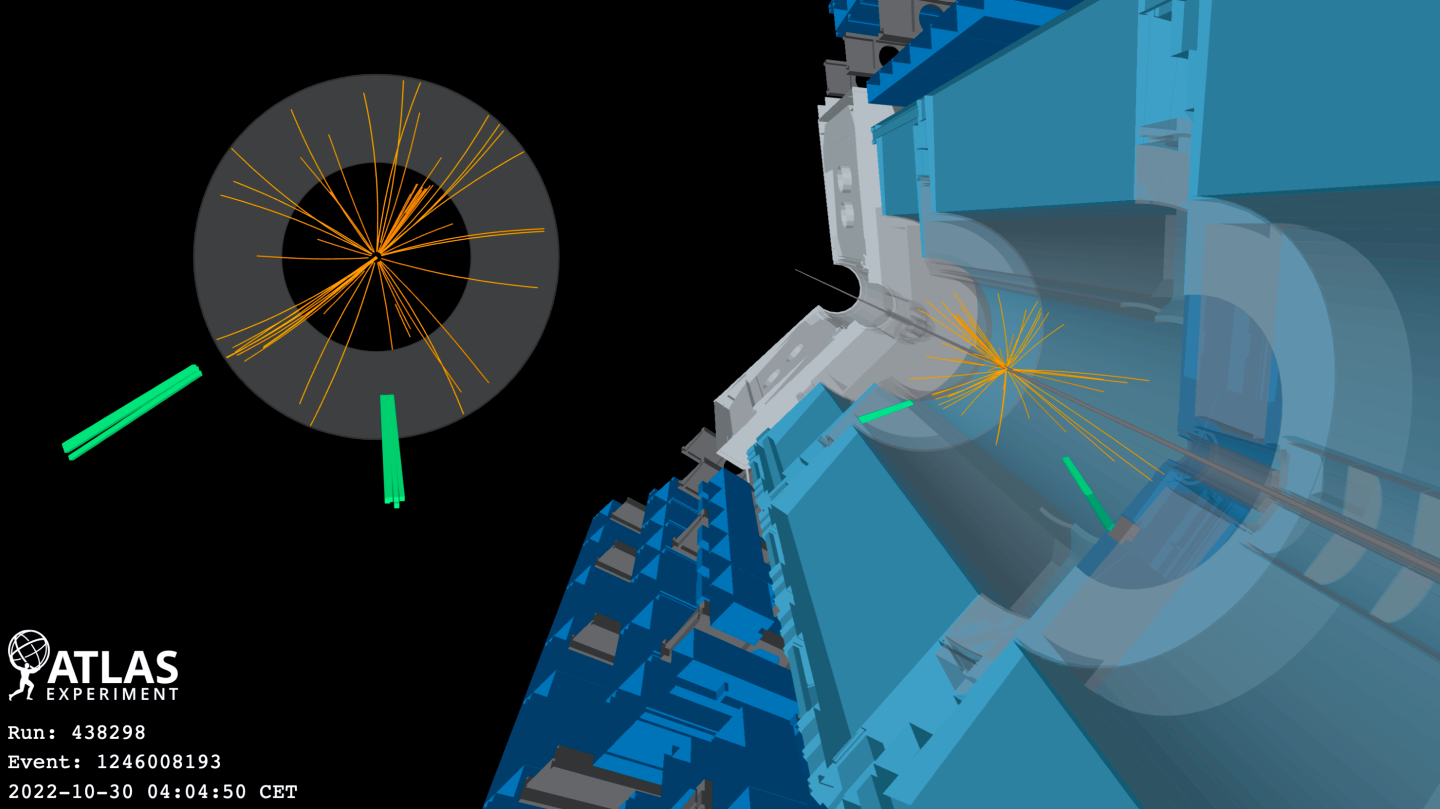
Candidate Higgs boson decays into two photons in the ATLAS experiment. Image Credit: CERN
Accurate measurements of the properties of this unique particle are among the most powerful tools physicists have to test the Standard Model, the theory that best explains the world of particles and also their interactions.
At the Lepton Photon Conference, the ATLAS collaboration reported how it had quantified the Higgs boson mass more accurately than ever before.
The mass of the Higgs boson is not forecasted by the Standard Model and must hence be identified by experimental measurement.
Its value regulates the strengths of the interactions of the Higgs boson with the other elementary particles as well as with itself. An accurate insight into this basic parameter is main to precise theoretical calculations, which, in return, enables physicists to face their measurements of the Higgs boson’s properties with a forecast from the Standard Model.
Deviations from such predictions would signal the existence of new or unaccounted-for phenomena. Also, the Higgs boson’s mass is a vital parameter that drives the evolution and the stability of the Universe’s vacuum.
The CMS and ATLAS collaborations have been making ever more accurate measurements of the Higgs boson’s mass as the particle’s discovery.
The new ATLAS measurement integrates two outcomes: a new Higgs boson mass measurement depending on an analysis of the particle’s decay into two high-energy photons (the “diphoton channel”) and also an earlier mass measurement depending on a study of its decay into four leptons (the “four-lepton channel”).
The new measurement in the diphoton channel, which integrates analyses of the complete ATLAS data sets from Runs 1 and 2 of the LHC, led to a mass of 125.22 billion electronvolts (GeV) with an uncertainty of just 0.14 GeV.
With a precision of 0.11%, this diphoton-channel outcome is the most accurate measurement of the Higgs boson’s mass from a single decay channel.
In comparison to the earlier ATLAS measurement in this channel, the new outcome benefits both from the complete ATLAS Run 2 data set, which decreased the statistical doubt by a factor of two, and from dramatic enhancements to the calibration of photon energy measurements. This helped reduce the systematic uncertainty by nearly a factor of four to 0.09 GeV.
The advanced and rigorous calibration techniques used in this analysis were critical for pushing the precision to such an unprecedented level. Their development took several years and required a deep understanding of the ATLAS detector. They will also greatly benefit future analyses.
Stefano Manzoni, Convener, ATLAS Electron-Photon Calibration Subgroup, CERN
When the ATLAS scientists integrated this new mass measurement in the diphoton channel with the previous mass measurement in the four-lepton channel, they achieved a Higgs boson mass of 125.11 GeV, having an uncertainty of 0.11 GeV. With an accuracy of 0.09%, this is the most accurate measurement yet of this basic parameter.
This very precise measurement is the result of the relentless investment of the ATLAS collaboration in improving the understanding of our data.
Andreas Hoecker, ATLAS Spokesperson, CERN
Hoecker added, “Powerful reconstruction algorithms paired with precise calibrations are the determining ingredients of precision measurements. The new measurement of the Higgs boson’s mass adds to the increasingly detailed mapping of this critical new sector of particle physics.”